CRYSTAL CITY, Va. (Oct. 22, 2010) - U.S. Army Forces Command (FORSCOM) hosted the second day of its third annual Family Readiness Group (FRG) Training Symposium Oct. 22 at the Hyatt Hotel by focusing on Comprehensive Soldier Fitness.
The annual training event attracted 470 FRG leaders from Army units nationwide this year.
"Physical, spiritual, emotional, family and social fitness are the five domains comprising Comprehensive Soldier Fitness (CSF)," said Col. Jeffery Short, medical director at the Comprehensive Soldier Fitness Directorate. "CSF takes these domains together to improve them proactively in our Soldiers, family members and civilians."
There are four lines of effort the Chief of Staff of the Army wanted the CSF staff to develop. One was to come up with a fitness test for the other domains of fitness besides physical. That is the online global assessment tool, which is an on-line survey Soldiers take and Family members can take, too if they can access Army Knowledge Online, said Short.
If the questions on the survey are answered honestly, it will give a person a relative fitness level in these areas.
"Another line of effort is online training modules that are called 'Comprehensive Resilience Modules' and we're developing them through several large contracts," said Short. "These are modules that are available on the CSF website, that are designed to improve fitness levels in those domains. The end goal after taking the global assessment tool is that a person will be led to the modules that will help improve their levels of fitness in the various domains."
At the moment, there are only about 25 modules, but more are constantly being made.
"The third line is that the Army Chief of Staff wants us to put resiliency training in all of our schools, so if we go to basic training, Basic Officer Leader Course, Warrior Leader Course or any course we do in [the Training and Doctrine Command], we should be getting resiliency training," Short said. "The last one, the one we are going to focus on here today, is the Master Resiliency Trainer Program."
What that is in the Army Chief of Staff's mind is that we train the trainers. For example, Soldiers and civilians from a particular post, unit and brigade get trained up on resiliency skills. Then, they are trained in how to teach them. That way, they can then go back to their post or unit qualified to teach some of these skills, said Short.
The FRG leaders only covered a few of the skills, so they could see what the training has to offer the FRGs and especially their Soldiers. Short said, the Army Chief of Staff wants to get MRTs (Master Resiliency Trainers) into the brigades, battalions and to Army Community Service Army-wide. At the moment, a majority of posts should have at least one MRT located at ACS.
"Today we're presenting for the FRG leaders here at AUSA to give them a feel for CSF program and the resiliency training that is available to them back at their bases," Short said. "So that when they go back to their bases, they can get the full-blown course taught to them by the master resilience trainer there. This particular discussion that we're having is brand new, we just tailored this specifically for these FRG leaders, and the hope is that they get sort of a feeling for the concepts."
CSF is a structured, long-term training program to enhance performance and improve resiliency for Soldiers, Family members, and Army civilians and has been one of the Army Chief of Staff's priorities for the past year and a half, Short said. The Army is developing the program to provide examples that will hit home with each demographic whether a Soldier, Family member or Army civilian employee. Not just useful for spouses, CSF is also useful for any Soldier whose Family members are 16 or older and for civilians who work in government offices.
"This is not rocket science. These are basic life skills, coping skills that are not hard to pick up. We're just putting names to things that a lot of us are already doing," Short said. "When I was a commander and in charge of the FRG for my unit, I would have loved to have been able to provide this sort of training at my FRG meetings. It's important for the FRG Leaders to go back and tell their commanders, 'We see the value in this, and we would like our Family members to get this training.'"
Sgt . 1st Class Chris Anderson, Army National Guard comprehensive Soldier Fitness Program Manager, shared how this training helped him get through a recent hard time.
"About three weeks ago, my father killed himself. Before this course, obviously, as an infantry Soldier and a drill sergeant, you kind of keep those things inside," Anderson said. Normally, I would just shut up; you know, keep to myself close up.
"So I rushed home, and all I could think about was everyone else. I didn't really take time to think how I felt until it was all done. Then, it really hit me hard for about three days, and I started catastrophising. I couldn't control my own thoughts, so I actually ... for the first time ... used what I learned here to go get help."
Anderson explained how he got counseling, so that he could come back to work. "It took me about two weeks worth of counseling, but now I'm back to work," he said.
Anderson said that after 15 years in the Army, it was hard for him to sit there and talk about how he had to ask for help and see a counselor, but by using the skills he learned through the MRT program, he was able to realize his life was getting out of control.
"My Family life was literally (being affected), my own spouse and kids (were impacted). I was taking my frustrations out on them, and it didn't have anything to do with them," Anderson said. However, with these MRT skills - single, married, family, wife, husband, mother, father - can all use these skills to identify issues and take positive steps to find help.
"Speak to the person using communication to get them to open up enough to realize they do need help, and that is what this is all about; get help and get back in the fight. Not to fight the war, but the everyday fight."
Single Soldier's parents, siblings or significant others can get help online the same as spouses and Army civilians to take the assessments and learn about CSF. The website is http://www.army.mil.csf. Or, they may also go to ACS to take classes.
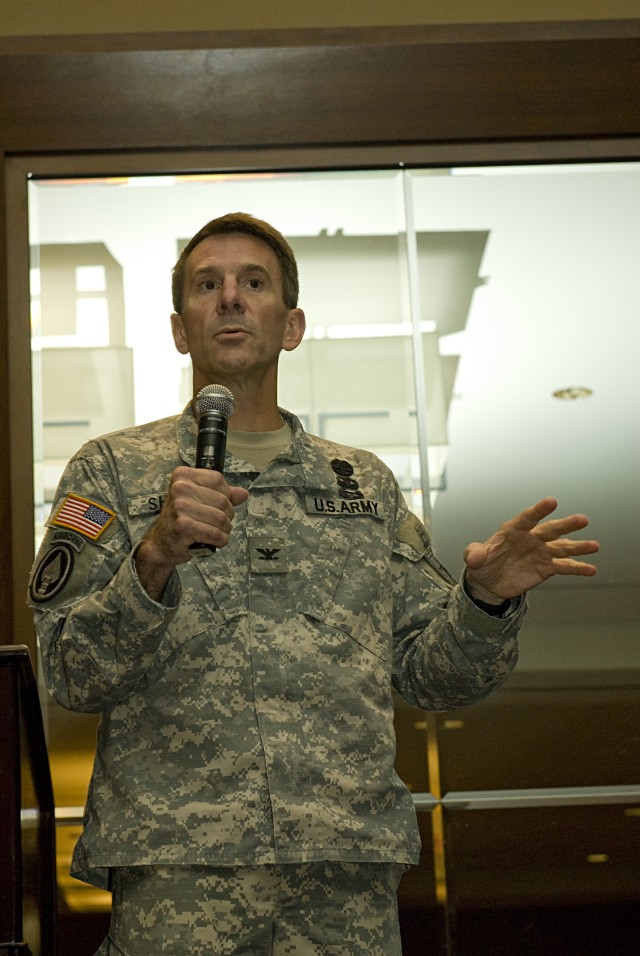
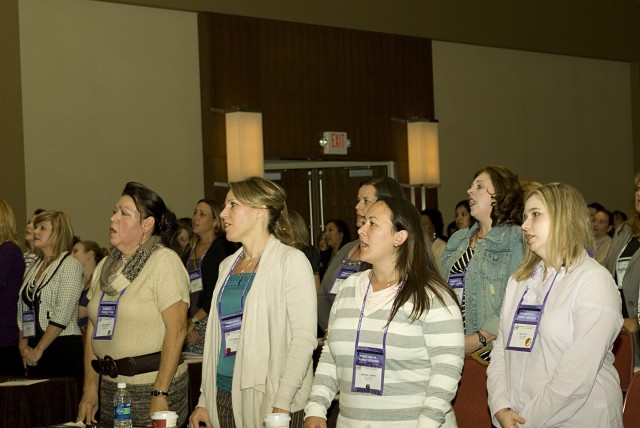
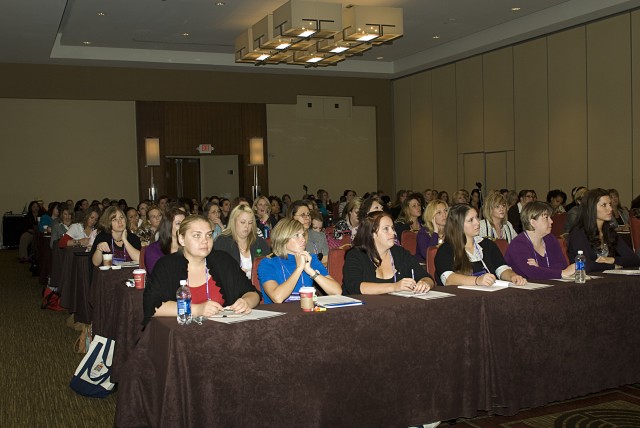
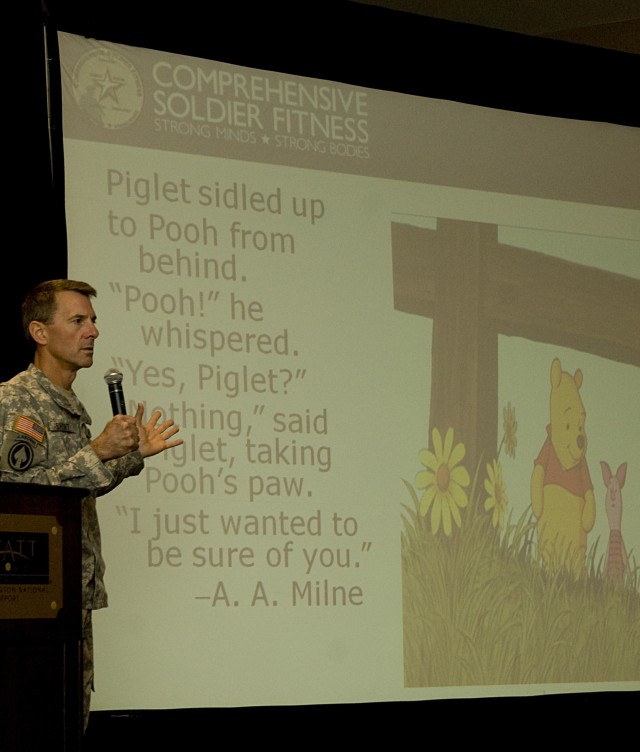
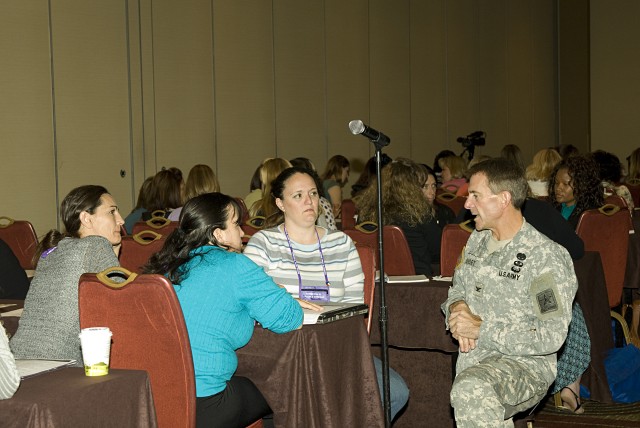
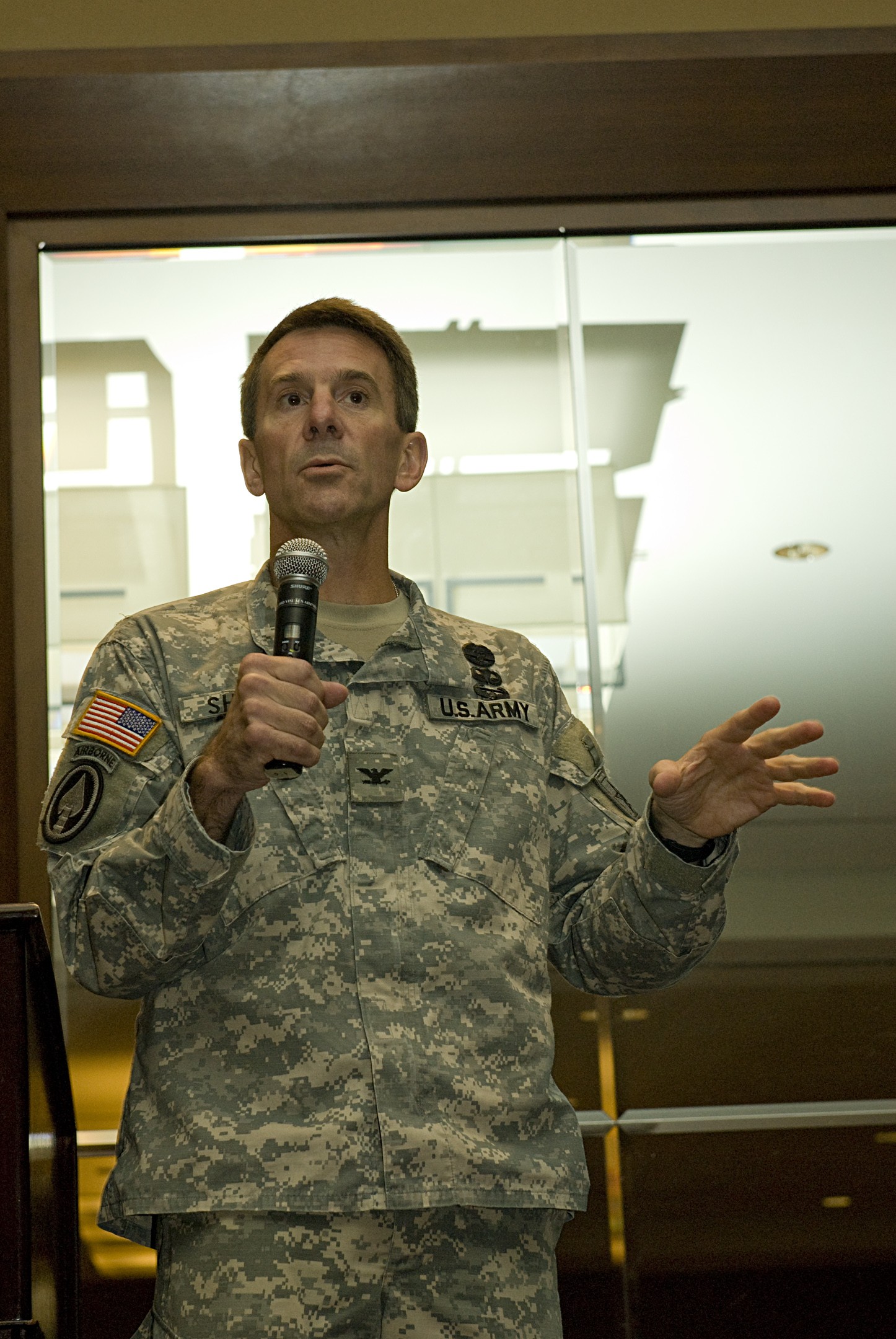
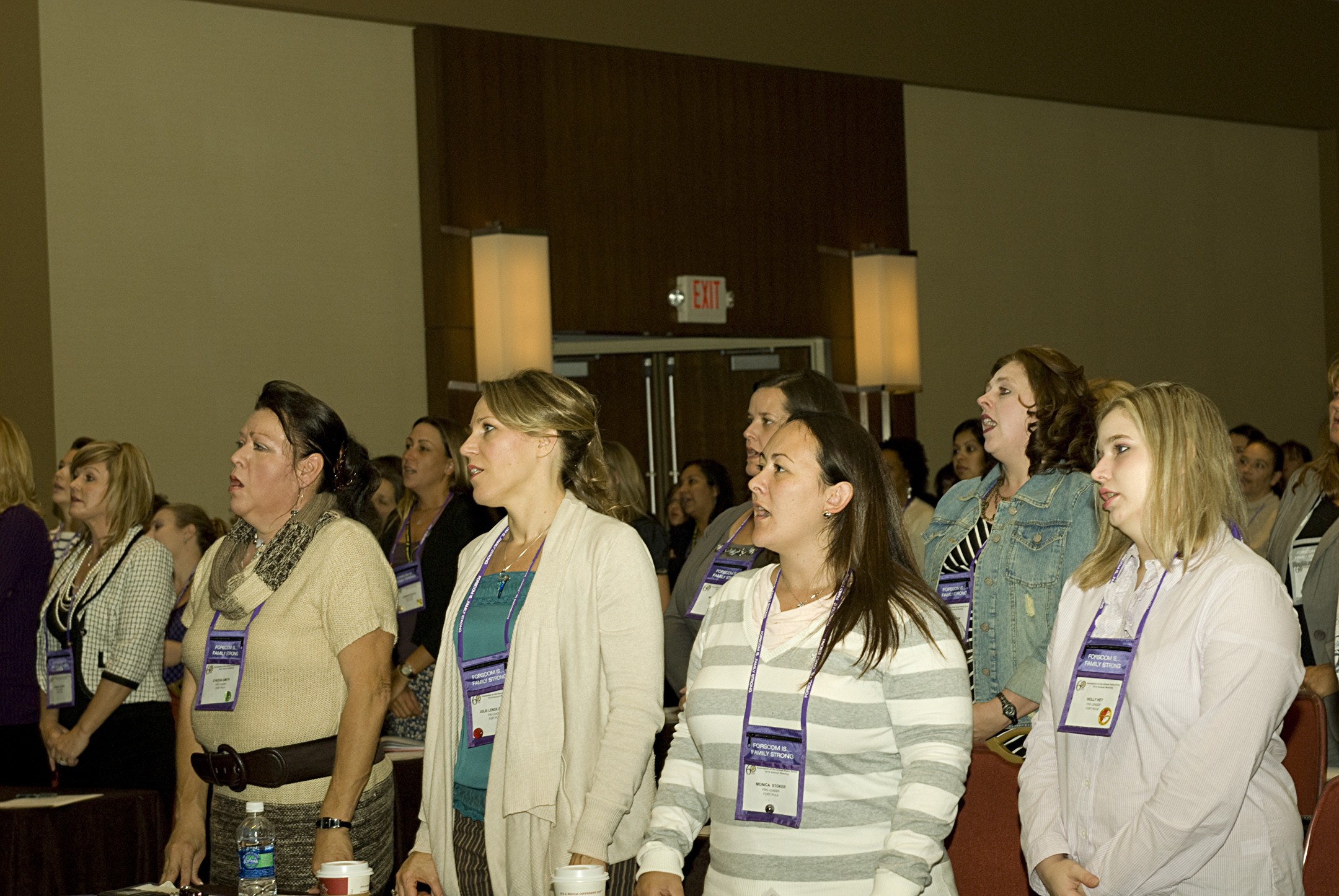
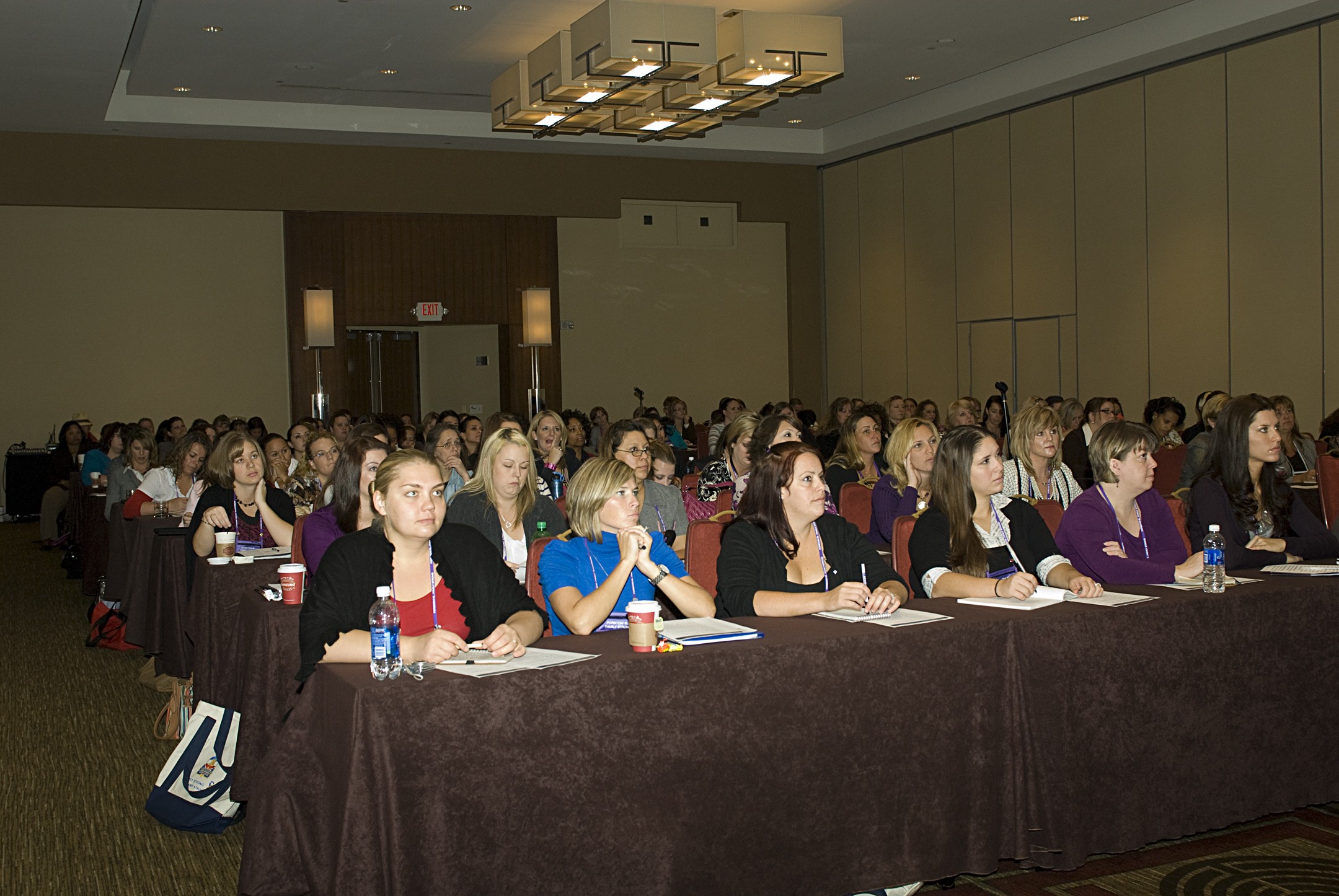
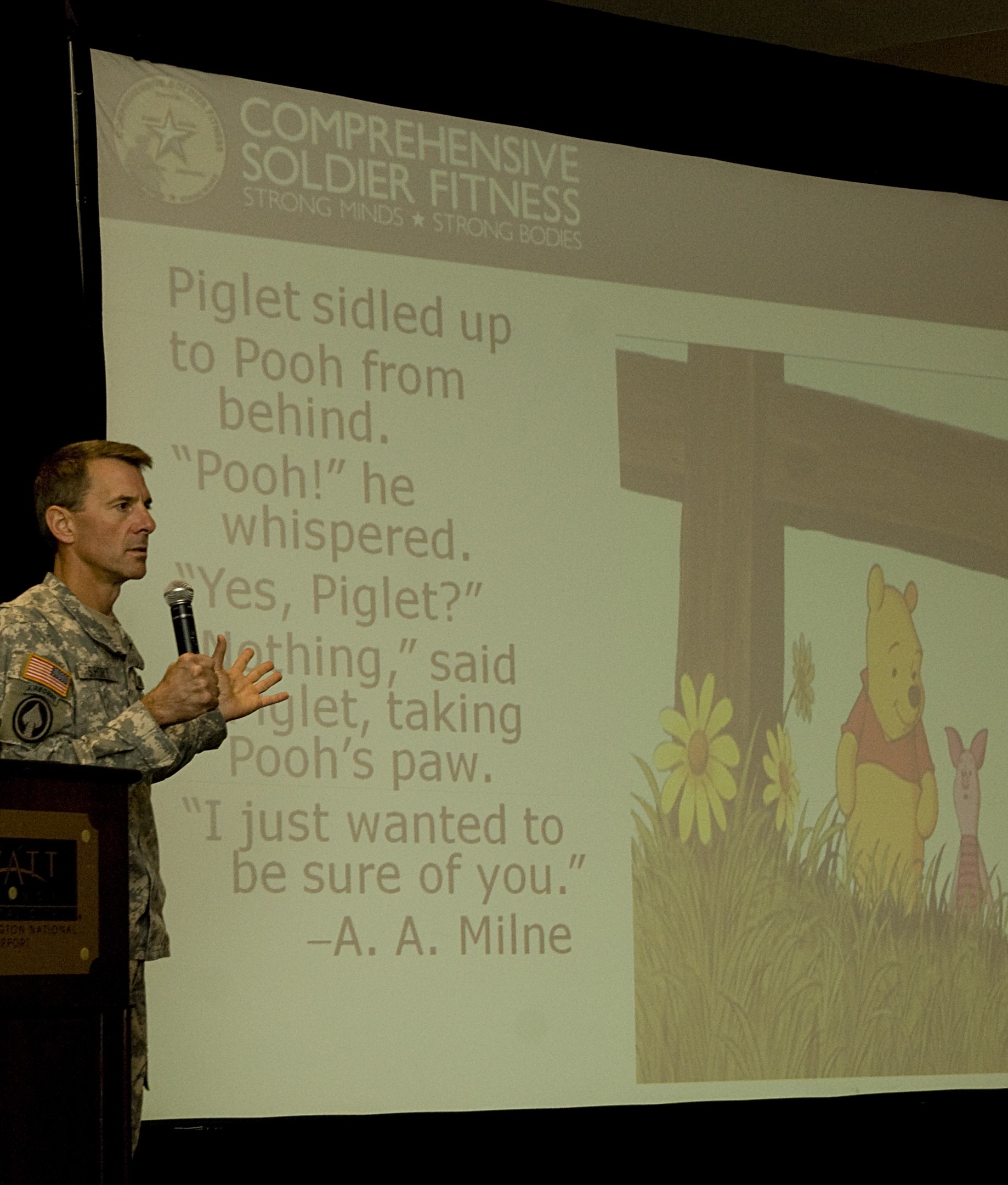
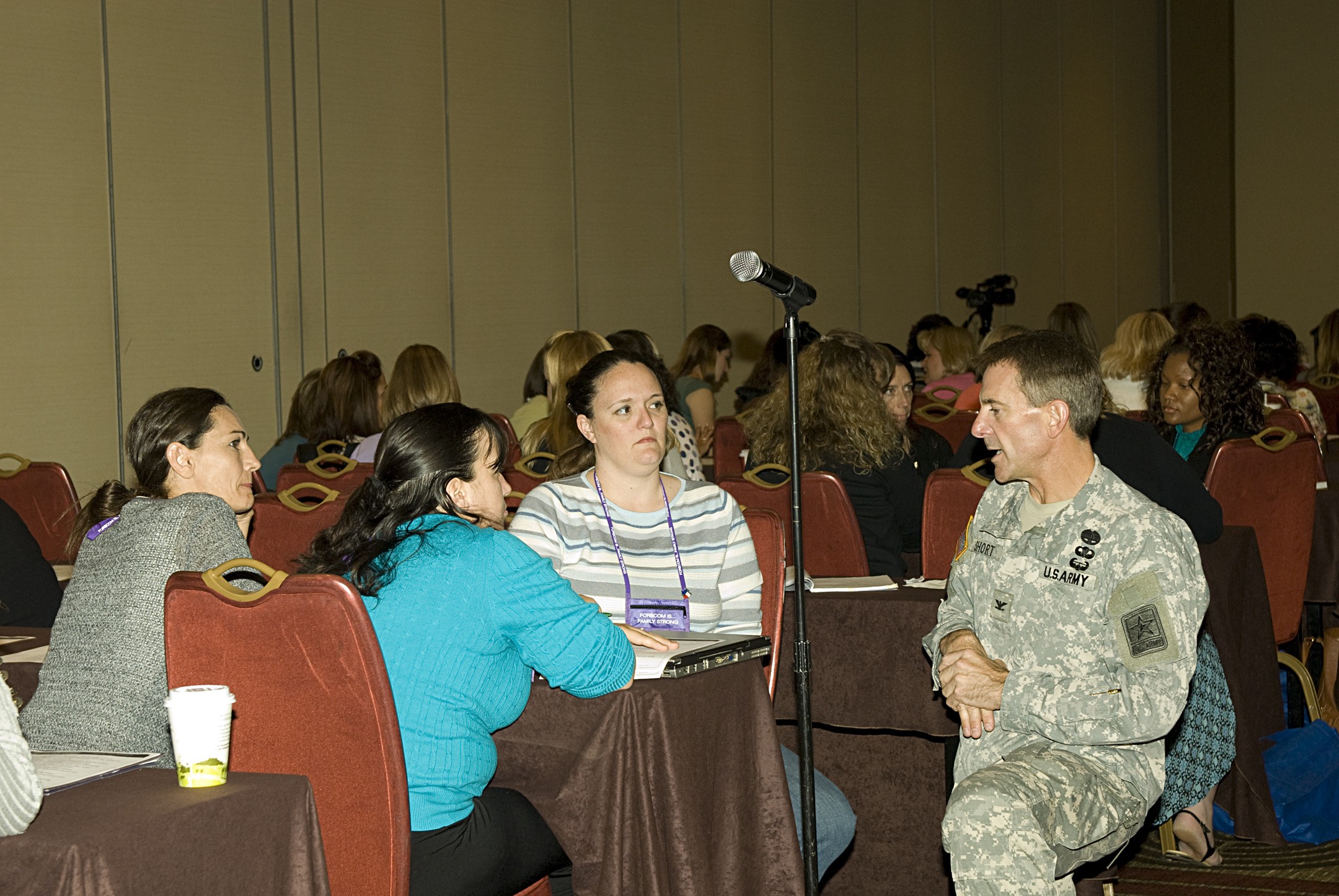
Social Sharing